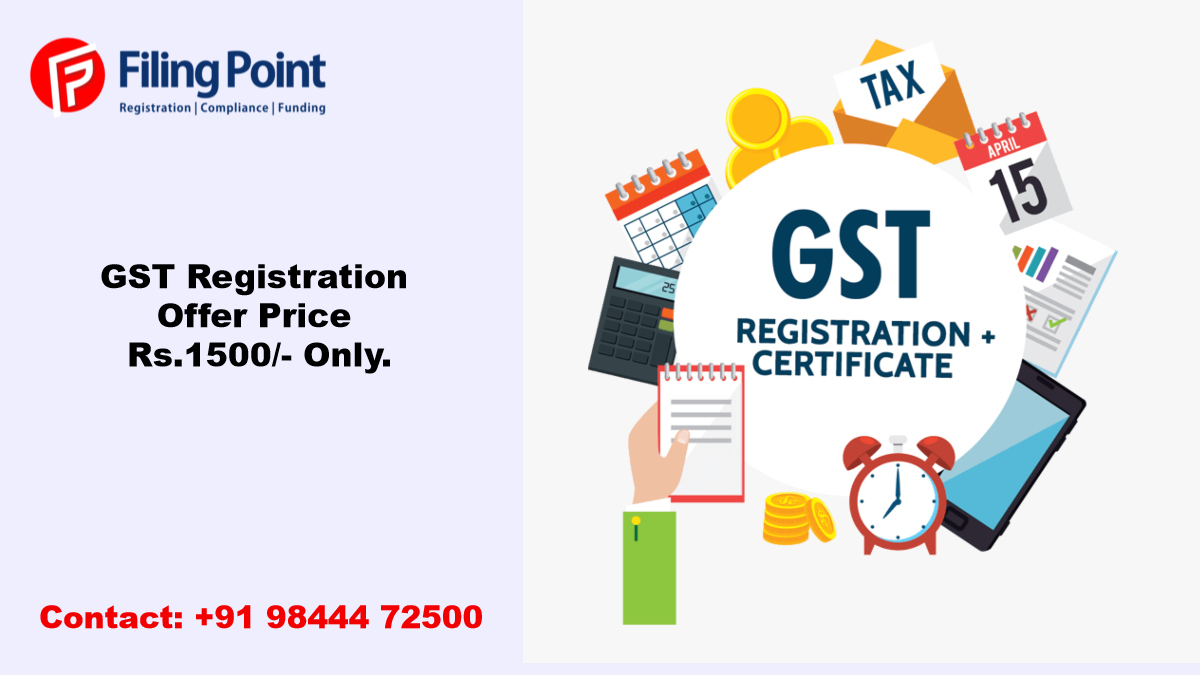The Ultimate Guide to Simplifying the GST Enrollment Process and Needs for Small Company Owners

Understanding GST Fundamentals
To comprehend the principles of the Item and Services Tax (GST) system, small business proprietors should initially comprehend its underlying principles and effects. Under the GST regime, companies are needed to gather and sign up tax on behalf of the federal government, making certain openness and conformity.
One of the key concepts of GST is input tax credit report, which enables services to declare credit rating for taxes paid on their acquisitions. This system stops the plunging effect of taxes and advertises effectiveness in the tax obligation system. Furthermore, GST is a destination-based tax, meaning that the tax is levied at the point of intake instead than the factor of origin. This ensures fair circulation of tax obligation income among states based on where the solutions or items are consumed. Understanding these basic concepts is essential for small company proprietors to navigate the complexities of the GST system and make certain conformity with the legislation.
Eligibility Criteria for Enrollment
Having developed a foundational understanding of GST principles, tiny service owners must now satisfy certain qualification requirements to proceed with the enrollment process (Singapore GST Registration). Businesses that were registered under the previous tax obligation program (VAT, service tax, etc) are also mandated to register under GST. Agricultural companies that only supply generate out of key production are excluded from GST registration.
Documents Required for GST Enrollment

Simplified Enrollment Refine Actions
Adhering to the collection and verification of the requisite documents, the enrollment procedure for GST can be navigated via a collection of simplified actions designed to assist in reliable conformity for tiny company owners. Upon successful confirmation, an Application Recommendation Number (ARN) is released, indicating the conclusion of the GST registration process. By adhering to these streamlined actions, small company proprietors can properly register for GST and guarantee compliance with tax laws.
Tips for Ensuring Compliance
To keep regulative adherence and functional integrity, thorough oversight and aggressive actions are essential in making certain compliance with GST demands for small company proprietors. Small company owners need to stay upgraded with GST guidelines, filing deadlines, and any kind of adjustments in tax obligation prices to prevent penalties click to read and maintain an excellent standing with tax obligation authorities. One crucial idea for conformity is to maintain in-depth and exact records of all purchases, including receipts, expenses, and invoices associated with GST. Regularly resolving monetary records with GST returns can aid in recognizing and rectifying any kind of inconsistencies quickly. Furthermore, carrying out website link routine inner audits or looking for professional help can guarantee that business is complying with all GST guidelines appropriately. It is additionally crucial for local business proprietors to purchase GST-compliant bookkeeping software application that can enhance the tax declaring process and reduce mistakes. Going to GST recognition workshops or training programs can improve understanding and compliance with GST guidelines, ultimately benefiting the organization in the lengthy run.
Verdict
Finally, small company owners need to understand the essentials of GST, satisfy the qualification requirements, collect needed records, and adhere to the streamlined registration procedure actions to guarantee compliance. By streamlining the GST enrollment procedure and needs, small business proprietors can avoid charges and run their companies efficiently within the lawful framework - Singapore GST Registration. It is vital for local business owners to stay certified and enlightened with GST laws to keep an effective service procedure
Little service proprietors looking for GST registration must guarantee they gather and send the necessary records to finish the registration process successfully. The papers needed for GST enrollment usually consist of proof of business registration or consolidation, PAN (Long-term Account Number) card of the business entity, address and identity proof of the promoters/partners/directors, photos, address evidence of the area of company, bank account declarations or terminated cheques, and consent kinds. Attending GST understanding workshops or training programs can boost understanding and compliance with GST policies, eventually benefiting the company in the long run.
By streamlining the GST registration process and requirements, tiny service proprietors can stay clear of fines and operate their services efficiently within the lawful structure. It is vital for tiny company proprietors to remain compliant and enlightened with GST laws to maintain a successful organization procedure.